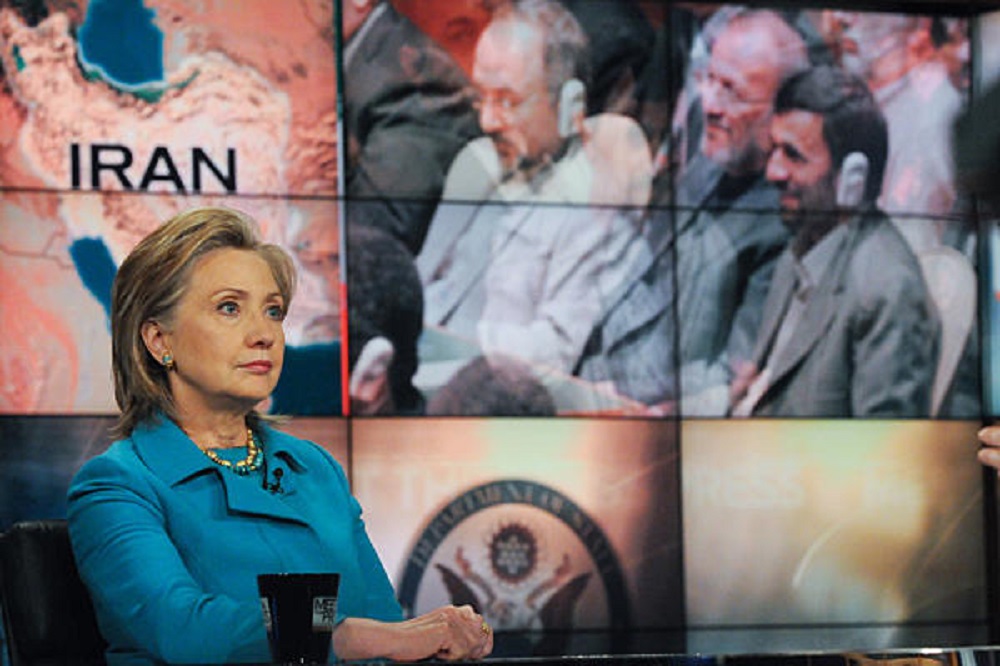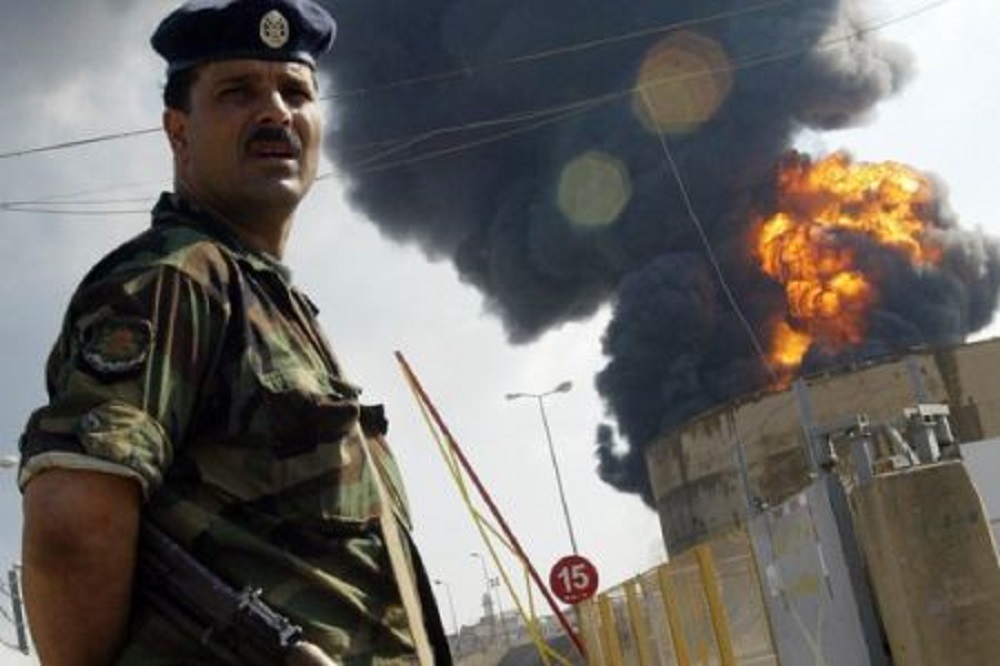End Game
“We are in a war,†Israel’s Prime Minister Ariel Sharon said recently, referring to his country’s fight with the Palestinians. The Palestinians agree: “This is war,†responded Al-Fatah’s commander on the West Bank, Husayn Shaykh. In fact, the Israelis and Palestinians have been at war for well over a year (some would say well over 50 years), but the fact that their leaders have now acknowledged it, makes it easier to assess the options.
War is dirty business. It is neither pleasant nor desirable, but in an environment where suicide bombers are trained to hate Jews and are revered as “holy men,” war becomes necessary and the total defeat of the enemy becomes a matter of national survival.
Within that context, the failure of the Oslo Agreements, the failure of the Camp David Accords, the recalcitrant nature of the current Palestinian leadership to assist in finding any peaceful resolution to the Israeli-Palestinian conflict, and the unrelenting terror attacks on Israel’s civilian population emanating from Palestinian territory (roughly equivalent to the losses that America would have suffered from eight World Trade Center disasters) show that anything resembling a “quick fix†will not work. Israel now has the unenviable task of convincing the Palestinians that their drams for Israel’s destruction will fail.
–break–
Arafat wanted a war; now he has one. Its time to end the game.
War has certain clearly defined patterns, and these patterns provide some historical insight into resolution of the current Middle East conflict.
– Victory consists of imposing one’s will on the enemy by convincing it that its cause is hopeless.
– Defeat consists of accepting that one’s cause is hopeless. It occurs when an enemy is rendered incapable of continuing the struggle: when its will to fight (psychologically) and its ability to wage war (militarily) are completely destroyed. The decisive defeats of Nazi Germany and the Empire of Japan by the Allies at the end of WWII were total and unconditional (both militarily and psychologically). Both were vanquished. Their regimes and infrastructures were dismantled; their capacity to wage further war was eliminated; those responsible for initiating the aggression were removed from power and replaced by a new leadership; and victory was both complete and decisive.
– Diplomacy rarely ends conflicts and cannot take the place of the dirty work of war. As strategist Michael Ledeen wrote recently: “Peace cannot be accomplished because some visiting envoy, with or without an advanced degree in negotiating…sits everyone around a table so they can all reason together.†An aggressor sees diplomacy as an opportunity to extract further concessions (appeasement).
– Appeasement (or “unilateral compromiseâ€) results when a powerful outside third party forces a unilateral (one-sided) compromise upon one of two adversaries. The submitting adversary is invariably perceived as the weaker party by the aggressor.
As William Safire correctly noted: “So long as Arab leaders believe that outsiders will impose a settlement on Israel that renders it impotent, they will keep terrorizing (Israel) through the next 10 cease-fires.†Rewarding Palestinian aggression (through an inconsistent US policy on terrorism) or forcing Israeli acquiescence to terror (in asking Israel not to retaliate for terrorist acts committed against it) will only serve to encourage further acts of terrorism and empower the terrorists. The greatest disasters of history have always followed in the wake of appeasement.
– Resolution (the end of war) occurs when an aggressor realizes that it can no longer pursue its objectives, and surrenders. This usually follows either total military collapse (WWII) or complete internal decay (which lead to the demise of the Soviet Union and the end of the Cold War). The converse to resolution of a conflict is stalemate.
Neither the Korean War (1953), nor the Iraq-Iran war (1988) were resolved, since neither adversary was “defeated†in the traditional sense. No fundamental change in either regime occurred. In that sense, it can be argued that even Iraq was not defeated in the Gulf War, as Saddam Hussein was not removed from power, and Iraqi society was left fundamentally unchanged. And despite the fact that the Arabs lost numerous wars with Israel (1948-1949, 1956, 1967, 1970, 1973, 1982), the Middle East conflict has never been resolved. That is because the warring Arab nations were never totally and unconditionally (that is: psychologically and militarily) vanquished.
In the wake of 9/11, America learned that it could not “resolve†its terrorist issues with the Taliban and al Qaeda short of their total and unconditional defeat – removing the Taliban from power, replacing the entire Taliban power structure with a new indigenous leadership, and destroying the terrorist infrastructure of al’Qaeda in Afghanistan. It recognized that, unless the al’Qaeda terror network was totally and unconditionally vanquished, it would continue to threaten Western society.
Israel has now reached a similar conclusion with respect to the Palestinian Authority. There is a growing realization that America and Israel are fighting the same war, in the same way, against the same enemy, and for the same reasons.
The Palestinians rejected the Clinton-Barak Initiative in July 200 (generous as it was), and all attempts at a cease-fire have failed because, quite simply, the Palestinian Authority continues to seek the destruction of Israel, not just Palestinian control over the disputed territories. That has always been part of the PLO covenant, and remains its covenant today.
So, within the context of the Middle East, what lessons should be learned?
– The Palestinians are testing a “new strategic weapon†on the world (suicide bombers) just as the Nazis used the Spanish Civil War as a testing ground for their new weapons in WWII. America should take heed and not interfere with Israel’s efforts to dismantle the terrorist infrastructure.
– Defeat, to be effective, must be total and unconditional both militarily and psychologically. It must result in fundamental changes to the society of the former enemy. Military conquest is not sufficient. As Jack Kelly of the New York Post wrote recently “negotiations before this occurs are…doomed to failure…it’s time to give war a chance.â€
– An aggressor perceives negotiation as a sign of weakness and as an expression of appeasement. This only encourages further terrorism. In the war against terrorists and bombers, the past teaches us that peace will only come through the total military defeat of the Palestinians – not out of negotiations among supposedly well meaning equals. Most Palestinians believe that they can destroy Israel. The Palestinians think they are winning, and think that things couldn’t get worse for them than they are now. They must be disabused of these notions. As Thomas Friedman of the New York Times has noted: “Israel needs to deliver a military blow that clearly shows terror will not pay.†Peace will be achieved only when the Palestinians accept, as fact, that they cannot destroy Israel and give up the dream of doing so.
Once Palestinian attitudes have been adjusted, a settlement very likely can be reached along the lines proposed by former Prime Minster Ehud Barak at Camp David in the summer of 2000. That will occur only when the current Palestinian leadership has been removed; when a new enlightened Palestinian leadership has been installed; when the terrorist infrastructure built by the previous administration has been dismantled, thereby making way for fundamental changes in Palestinian society (ending the culture of martyrdom), and when a new Middle East Marshall Plan has been introduced to provide a “new economic tomorrow†for the Palestinians.
The US administration is wrong in its belief that there is “no military solution to the Arab-Israeli conflict.†A military solution is the only solution that will stop the carnage provided that it is total, unconditional and leads to fundamental changes in both the regime and the society over which it rules.



